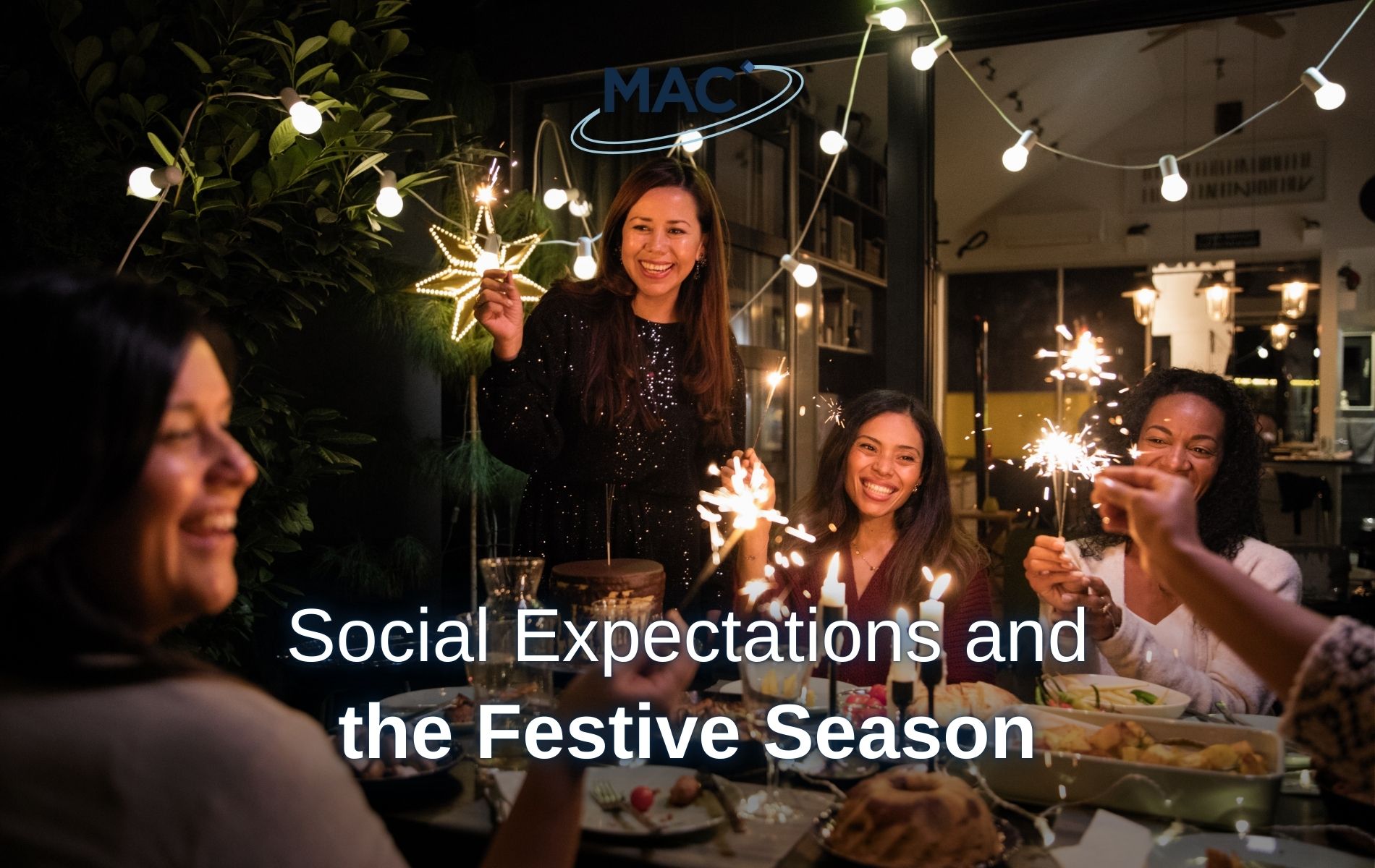As the festive season approaches, we are often presented with a time of joy, connection, and celebration. Yet, for many people, this period can also exacerbate symptoms of mental health conditions.
The pressure to socialise, the stress of family gatherings, and the societal expectations surrounding this season can amplify feelings of anxiety, depression, and other mental health challenges.
Around 25% of people say that Christmas makes their mental health worse1, and 54% of people said they were worried about the mental health of someone they know during the festive season2.
Family Gatherings and Mental Health
Spending time with family during the holidays can be a source of warmth and connection, but it can also be a major trigger for mental health struggles. Family dynamics are complex, and unresolved conflicts or long-standing tensions can come to the forefront during gatherings. For those with mental health conditions, navigating these strained relationships can feel overwhelming.
For individuals who have experienced trauma or difficult childhoods, being around family members can lead to resurfacing of painful memories, which can trigger symptoms of post-traumatic stress disorder (PTSD), for example. In one study, adolescents with PTSD were over five times as likely to emerge from a poorly functioning family compared to a well-functioning one3.
The expectation to engage in family activities and maintain a happy demeanour, even when struggling internally, can place an immense strain on one’s mental health.
Additionally, some family members may unintentionally exacerbate mental health issues by making comments or judgments about one’s lifestyle, choices, or appearance. These seemingly small remarks can deeply affect those with anxiety or depression, leading to a downward spiral of negative thoughts.
In some cases, family members might dismiss or misunderstand mental health conditions, adding to the feelings of isolation and frustration that people with mental health conditions already feel. In one survey conducted with people living with depression, over 80% of respondents claimed that life would be easier if their peers better understood their condition4.
The Pressure to Socialise
Beyond family gatherings, the festive season is filled with social obligations. From office parties to Christmas markets, the prospect of socialising and being around others can be overwhelming for those with mental health conditions, especially social anxiety or depression.
For individuals with anxiety, the pressure to attend parties or gatherings can lead to intense feelings of dread and panic. The expectation to make conversation, interact with unfamiliar people, or be in crowded spaces can trigger heightened feelings of anxiousness and stress.
Many may feel guilt or shame for avoiding these social events, even though they know attending them could be detrimental to their mental well-being.
Similarly, for those with depression, the energy required to participate in festive activities can feel overwhelming. While others may be full of holiday cheer, people with depression might struggle to summon the strength to interact with others. This disparity between their internal experience and the outward joy of the season can create feelings of isolation and loneliness, further intensifying their depressive symptoms. In another survey, around 17% of people in the UK report that they feel an increased sense of loneliness during the festive period5.
Managing Mental Health During the Festive Season
Although the approaching festive season can be daunting, there are steps that can help manage mental health during this time. Setting boundaries is crucial; where appropriate, decline invitations or leave gatherings early if they become too overwhelming. Communicating openly with trusted family members or friends about mental health struggles can also help alleviate some of the pressure.
Practicing self-care, such as taking time for oneself, engaging in calming activities, and seeking professional support if needed, can make a significant difference. Importantly, it’s essential to remember that it’s okay not to feel festive, and taking care of one’s mental health should always come first.
Here at MAC Clinical Research, we want to improve quality of life for those living with mental health conditions through clinical trials investigating potential new treatments.
To find out more about our current clinical trials for mental health conditions, including depression, anxiety, and OCD, visit our current trials webpage.
If eligible for a clinical trial, you will receive a full health check-up and travel expenses, you may also receive financial reimbursement.
1 YouGov – How does Christmas impact people’s mental health?
2 Mental Health Foundation – You and your mental health still matter this Christmas
3 Journal of Family Psychology – Family Functioning and Posttraumatic Stress Disorder in Adolescent Survivors of Childhood Cancer
4 Depression and Bipolar Support Alliance – Depression Disconnect: GeneSight® Mental Health Monitor Shows Misunderstanding of Depression and Treatment
5 Statistica – Thinking about the festive period, to what extent do you agree or disagree with each of the following statements?




